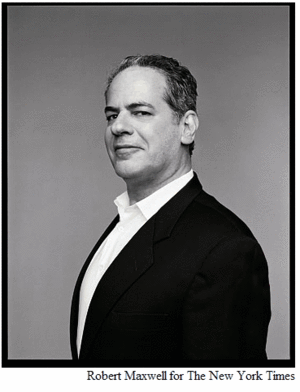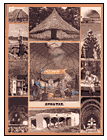 Herbert Muschamp, best known as the architecture critic for the New York Times, died late Tuesday night after a fierce and unpleasant battle with cancer. He was 59
Herbert Muschamp, best known as the architecture critic for the New York Times, died late Tuesday night after a fierce and unpleasant battle with cancer. He was 59
“We were the children of white flight, the first generation to grow up in postwar American suburbs. By the time the ’60s rolled around, many of us, the gay ones especially, were eager to make a U-turn and fly back the other way. Whether or not the city was obsolete, we couldn’t imagine our personal futures in any other form. The street and the skyline signified to us what the lawn and the highway signified to our parents: a place to breathe free.” Herbert Muschamp
"A city is never more fully human than when expertise — our own or someone else’s — allows us access to ebullience, lightness and delight." Muschamp’s review of Santiago Calatrava’s design for a building at 80 South Street, written in 2004
Philadelphia born, Muschamp studied art at the University of Pennsylvania before dropping out to move to New York. He was enmeshed in the burgeoning arts scene and, according to Elaine Woo’s obit in the LA Times, was a regular fixture around Andy Warhol’s "the Factory." Muschamp went back to school, studying architecture at Parsons where he eventually taught. He wrote for Vogue, Art Forum, the New Republic and of course The New York Times where he was architecture critic starting in the early 1980s.
His writing ranged across many fields. His first book File under Architecture, is a, sadly out of print, classic. He wrote Hearts of the City, and the introduction to Robert Mapplethorpe’s The Complete Flowers. In his Man About Town : Frank Lloyd Wright in New York City, Muschamp deflated Wright’s "city hating" posturing as a conceit and looked critically (and at times favorably) at Wright’s urban projects — like Broadacres and Million person skyscraper. It makes for great writing. In an essay on the Viennese architect Adolf Loos in Visions of Utopia, Muschamp wrote a great working philosophy for one’s individual work:
"…utopianism, for me, has come to represent the concept of taking local, idealistic actions in an imperfect universe. I can’t think about this subject in any other way. The conventional utopia–the imaginary ideal city or world — seems to me a transitional state between belief in an almighty dignity, a supreme being capable of bending the laws of nature, and the acceptance of personal responsibility in whatever sphere life happens to place us." Herbert Muschamp "Service Not Included" Visions of Utopia
I loved his writing. It was incisive, funny, and educational. I appreciated his passion (a word that keeps coming up in all the obits about him). You could tell that architecture and the way that people live in the city mattered.  A few years ago I came across a great piece of Muschamp’s 1970s-era criticism in an old volume of Lloyd Kahn’s Shelter book (recently reprinted). The book, sort of a relic of hippie DIY building (it was recently reissued), was a wonder. But I was amazed to see Muschamp in its pages. I remember doing a sort of double take. Of course this was years before his New York Times days, but as I read the piece, titled "Medieval NYC" I realized Muschamp was a perfect fit for this book about building authentically. I found it just as fitting and fresh for the current era. I always found his work to be about a deep humanism and a desire for authenticity. He championed then largely unknown architects like Frank Gehry.
A few years ago I came across a great piece of Muschamp’s 1970s-era criticism in an old volume of Lloyd Kahn’s Shelter book (recently reprinted). The book, sort of a relic of hippie DIY building (it was recently reissued), was a wonder. But I was amazed to see Muschamp in its pages. I remember doing a sort of double take. Of course this was years before his New York Times days, but as I read the piece, titled "Medieval NYC" I realized Muschamp was a perfect fit for this book about building authentically. I found it just as fitting and fresh for the current era. I always found his work to be about a deep humanism and a desire for authenticity. He championed then largely unknown architects like Frank Gehry.
The obituary in the Los Angeles Times quotes Muschamp’s once writing about his agenda:
"If I have an agenda," he wrote, "it is to peek beneath the mantles of authority with which architecture needlessly cloaks itself, and reveal the fishtails and horses’ behinds."
Shouldn’t this be the agenda of every curious living person?
This was published on my blog Wondermachine.